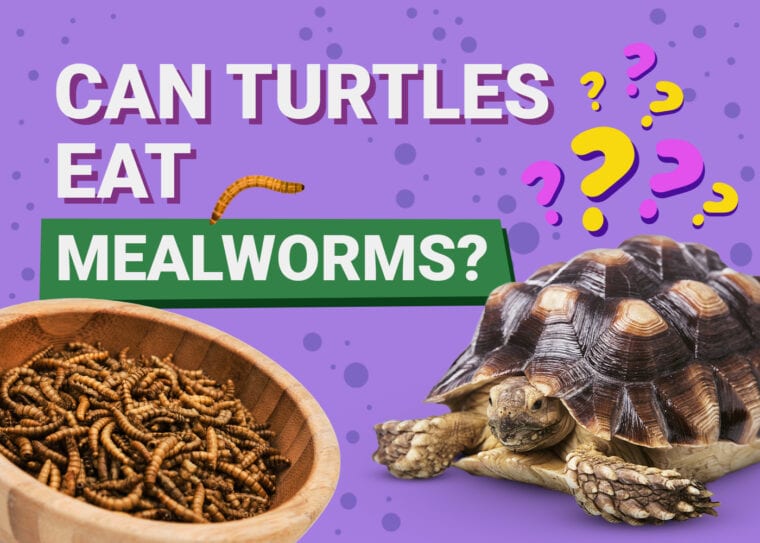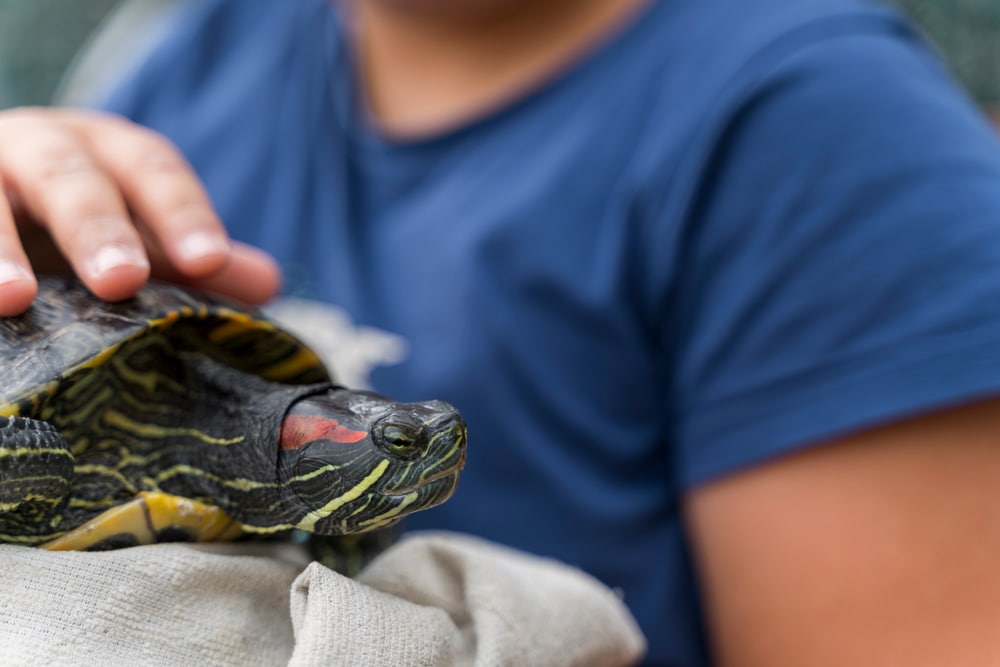
Turtles are very diverse, and different species of turtles can have completely opposite diets. Some land turtles are herbivores, while many aquatic turtles are carnivores. Some of the most popular species of pet turtles are omnivores. So, a turtle’s suitability to eat mealworms will ultimately depend on the species.
With that being said, your pet turtle is most likely able to eat mealworms, especially if they’re aquatic. However, mealworms may contain too much protein and fat to be incorporated into their daily meals. If you decide to feed your turtle mealworms, only serve them as occasional treats.
Are Mealworms Safe for Turtles To Eat?
There’s no denying that mealworms are packed with nutrients. They contain a lot of protein, fat, and fiber. Dried mealworms have even more protein, fat, and fiber values than live mealworms. Mealworms are also a good source of several vitamins and minerals, like vitamin B2, vitamin B5, vitamin B12, copper, iron, manganese, and magnesium.
While mealworms are nutritious, they can be too much for turtles. Turtles that consume too much protein and fat are at risk of shell pyramiding. Shell pyramiding refers to the scutes of the shell growing upward. If left untreated, it’ll eventually negatively affect lung functioning and weaken the turtle’s legs. It can affect the spinal cord and cause paralysis, and many turtles with shell pyramiding live shortened lives. Female turtles can also experience problems with laying eggs.
So, if you plan to feed your turtle mealworms, only give them as an occasional treat. Turtles shouldn’t eat mealworms every day, but if they enjoy eating them, they can eat them every few days.

A Turtle’s Diet
The best way to find the right diet for your turtle is to consult your exotics veterinarian. A veterinarian with experience with exotic pets and reptiles can help you find a complete and well-balanced diet for your turtle.
An omnivorous pet turtle’s diet will generally be half protein and half vegetables. Turtles can safely eat several different kinds of insects, like beetles, caterpillars, earthworms, and crickets. Larger turtles may eat snails and small fish. You can also add turtle pellets to your turtle’s diet to ensure they’re getting all the nutrients they need.
Turtles can eat a variety of grasses, fruits, and vegetables. It’s best to feed them dark, leafy greens, like romaine lettuce, alfalfa, cilantro, and dandelion greens. Iceberg lettuce isn’t recommended because it doesn’t have much nutritional value.
Some turtle species, like box turtles, can enjoy eating a variety of vegetables, like broccoli, bell peppers, and green beans. Some vegetables, including cucumber, carrots, and parsnips, can only be given in moderation.
Many types of turtles can eat fruit, but fruit should only be given as a special treat. Some fruit that turtles can enjoy as snacks include apples, pears, bananas, grapes, melons, and strawberries. Some turtles may also like being given edible flowers as treats. Some edible flowers for turtles are dandelions, carnations, hibiscuses, and roses.

Conclusion
Overall, mealworms aren’t a necessary part of a turtle’s diet. They can be too rich in fat and protein and end up causing significant health issues. However, turtles can eat mealworms occasionally as special treats. The best way to determine if mealworms are safe for your turtle is to ask your veterinarian. So, make sure to have a conversation with your veterinarian to ensure your turtle is eating safe and nutritious meals.
See Also:
Featured Image Credit: SusImage, Shutterstock








